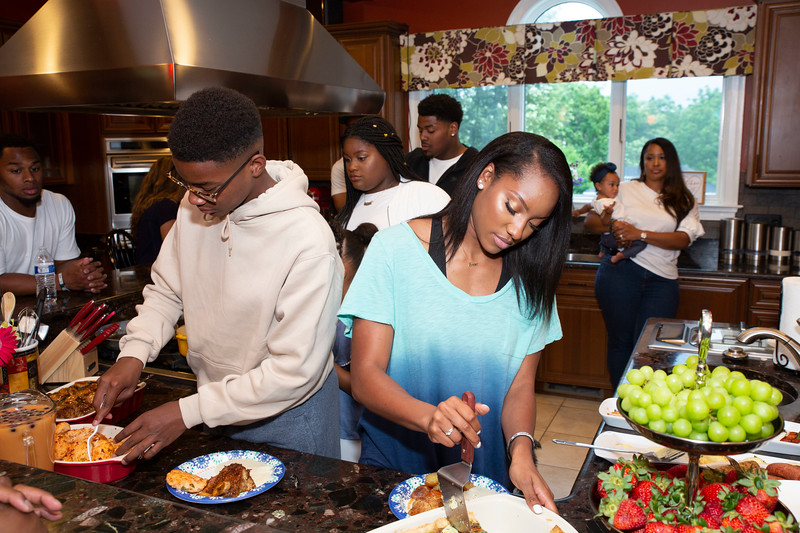By Troy Vincent
The coronavirus pandemic has come upon us suddenly. It is historic and we are living through it. In life, there are many unexpected things that we face each day. We learn to deal with them, as a result of our ability to adapt with experience. It is when unexpected challenges like coronavirus are presented that expose our preparedness.
Who would have thought that stores, restaurants, and other gathering places would be shut down? How would we have known that grocery stores’ shelves would be empty? Could we ever had imagined that we would be asked to stay in our homes as part of social distancing and self-quarantining? Six weeks ago, all this would have been considered a far-out apocalyptic movie. Today it is reality. But our response will determine our destiny.
We have seen just how small the world is. Humanity is globally connected in this 21st Century. What happens in China can determine what happens in large cities like New York or even in a small rural community in South Dakota.
These situations call our attention to effective and intentional planning. Planning puts us in the best position for preparedness, not just when the unforeseen occurs, but also for the changes that take place in our lives each day. For those of us who are at home, this may be a time to do some short-, intermediate-, and long-term planning. Taking time to sit with your family and discuss what can be done to prepare for unforeseen circumstances—loss of power, weather-related disruptions, essentials. Planning should also include how we support one another in our extended family, the community, the elderly; how we communicate; how we activate.
We can be prepared with supplies of food, for example. What are our needs—not necessarily our wants—to get us through? How are we going to safely attain those needs? What is our plan? How are we going to execute the plan? These are all questions that should be answered before we take action. How are we planning to protect family members, children, spouses, from contracting coronavirus? Have we educated ourselves about prevention? A good place to start is the Centers for Disease Control website https://www.cdc.gov. It is part of being prepared.
Preparedness also includes the battlefield of the mind. The Bible says that we are not given a spirit of fear, but of power, and of love, and a sound mind. Fear is destructive. It makes you indecisive; causes you to make unwise decisions; can drive you to do things that you not normally would do. But we don’t have to take that route.
We have the power to control what we can control to keep ourselves and our families safe and healthy. We have the power to take authority over the challenges we face and find reasonable solutions for them. We also have a sound mind—the ability to reason through our circumstances without anxiety or panic. We do not have to be swayed by the latest sensational headline. We can think for ourselves and take good counsel on how to handle any situation. If we do not know what to do, there is a process that can prepare us for making a good decision. When I am not sure what to do, I pray about it for direction and seek the counsel of my wife and close friends. Their guidance is essential because they care about me.
In addition to power and a sound mind, we are to have a spirit of love. During these difficult times, it is easy to become frustrated and negative—once again, the true battlefield of the mind. But the greatest of all virtues is love. The best changer of circumstances is love. Love conquers all. A kind word, a gentle action goes a long way.
These days, we all are facing unusual circumstances. We are pioneering new areas. We are experiencing things we never thought we would see in our lifetimes. Preparing our minds each day will help us to prepare the safest and best way for ourselves and our families. Be encouraged. You can do this. We can do this. We are better together.

